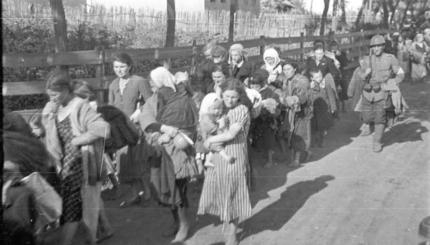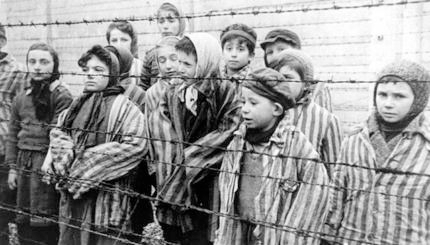Mechitza: Art and Women’s Resistance During the Holocaust
Hosted By: The Center for Jewish History
One aspect of Zuzanna Hertzberg’s practice is to recover the herstories of Jewish activism since the early 20th century. For a decade, the artist has meticulously constructed an affective archive of women Jewish resistance fighters. Hertzberg’s thorough research is based on her own Polish-Jewish identity; her intersectional anarchafeminist political engagement; her interest in performance, artivism, omitted narratives and minority perspectives; and her concern with the flaws and blind spots of collective memory. She has compiled a collection of herstories of those who resisted but have not been remembered. She presents the heroines of ghettos and Nazi concentration and extermination camps in Poland, Ukraine, Belarus, and Lithuania—women that she introduced to the historical narrative in Poland, whose strategies could still be used today. We see their ID cards and articles they wrote, along with their young faces on photographs from collective meetings. The documentation is printed on large-format textiles that vaguely resemble banners, flags, or curtains. This is a reference to a mechitza, a partition between women and men in orthodox synagogues, and to the many lines of partition that run through families, systems of education, politics, or the constructions of shared histories.
A long-term, ongoing project, this textile installation and spoken word performance were presented as part of the 2022 Berlin Biennale for Contemporary Art.
The event listed here is hosted by a third party. My Jewish Learning/70 Faces Media is not responsible for its content or for errors in the listing.



